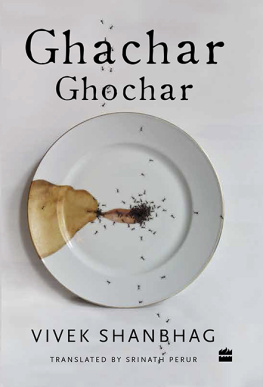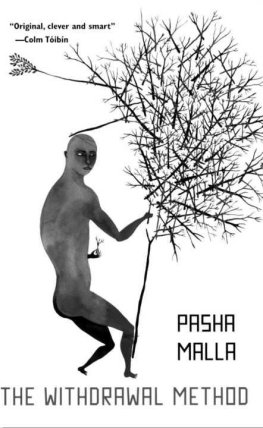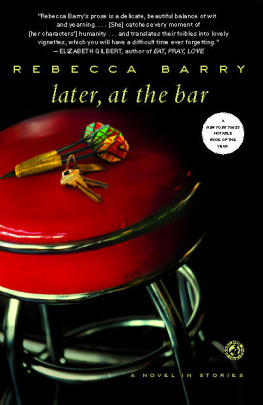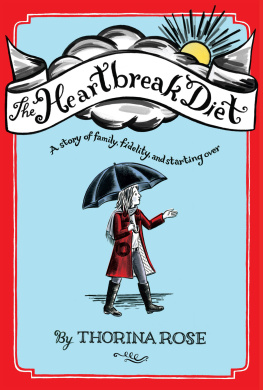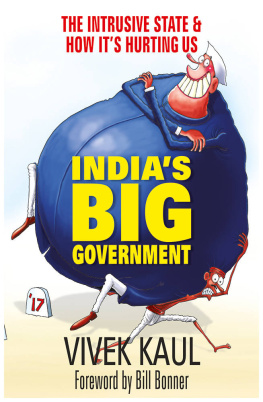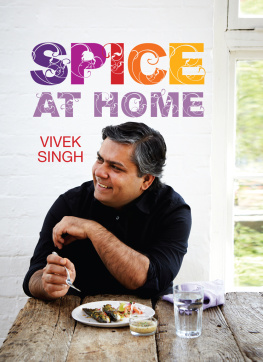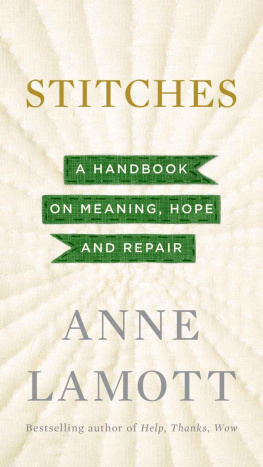GHACHAR
GHOCHAR
VIVEK SHANBHAG
TRANSLATED FROM THE KANNADA BY
SRINATH PERUR

In memory of
Yashwant Chittal
CONTENTS
Vincent is a waiter at Coffee House. Its called just that Coffee House. The name hasnt changed in a hundred years, even if the business has. You can still get a good cup of coffee here, but its now a bar and restaurant. Not one of your low-lit bars with people crammed around tables, where you come to suspect that drinking may not after all be a wholesome activity. No, this place is airy, spacious, high-ceilinged. Drinking here only makes you feel cultured, sophisticated. The walls are panelled in wood to shoulder height. Old photographs hang on the sturdy square pillars in the centre of the room, showing you just how beautiful this city was a century ago. The photographs suggest a gentler, more leisurely time, and somehow Coffee House still manages to belong to that world. For instance, you can visit at seven in the evening when its busiest, order only a coffee and occupy a table for two hours, and no one there will object. They seem to know someone who simply sits there for so long must have a thousand wheels spinning in his head. And they know those spinning wheels will not let a person be. Eventually, hell be overwhelmed, just like the serene spaces of those photographs that buyers devoured and turned into the cluttered mess we have around us today.
Let all that be I dont mean to brood. Returning to this Vincent: hes a dark, tall fellow, a little over middle age, but strong, without the hint of a belly. He wears a white uniform against which its impossible not to notice an extravagant red cummerbund. On his head is a white turban, its tuft sticking out like Krishnas peacock feather. I cant help feeling when Vincent is around serving coffee, pouring beer at a practised angle, betraying the faintest of smiles as a patron affectedly applies knife and fork to a cutlet that he can take us all in with a single glance. By now I suspect he knows the regulars at Coffee House better than they know themselves.
Once, I came here when I was terribly agitated, and found myself saying out loud as he placed a cup of coffee in front of me: What should I do, Vincent? I was mortified and about to apologize when he answered, thoughtfully: Let it go, sir. I suppose it might have been a generic response, but something about his manner made me take his words seriously. It was soon after that I abandoned Chitra and whatever there was between us. My life then took a turn that led to marriage. Now, let me not give the impression here that I believe in the supernatural I dont. But then, neither do I go hunting for a rational basis for everything that happens.
Today, Ive been sitting in Coffee House longer than ever before. Im desperate for a sign of some sort. Part of me longs to speak to Vincent, but Im holding back what if his words hint at the one thing I dont want to hear? Its afternoon. There are few people around. Directly in my line of sight is a young woman in a blue T-shirt, scribbling something in a notebook. Shes at a table that looks on to the street outside. Two books, a glass of water and a coffee cup sit on the table in front. A lock of hair has drifted on to her cheek as she writes. The girl is here at this time at least thrice a week. Sometimes theres a young man who joins her for a coffee and they leave together. Its the same table at which Chitra and I used to meet.
Just as I begin to wonder if her friend will turn up today, I see him at the door. He takes the chair in front of her. My gaze trails away distractedly, then returns to their table with a jerk when I hear shouting. Shes on her feet now, leaning across the table. One hand holds his collar. The other is slapping him across the face. Hes blurting explanations, forearms raised to fend her off. She releases his collar and throws a book at him, then another, all the while screaming abuses that implicate all men. She pauses, eyes darting over the table in rage as if looking for something else to attack him with. He shoves back his chair and flees. She takes the glass of water in front of her and flings it at him. It misses and shatters against the wall. Shes surprisingly calm after hes gone. She picks up the books and her bag. For a few moments, she sits with her eyes closed, breathing heavily. One of the boys sweeps up the broken glass. Coffee House had fallen silent as the few people present watched the scene unfold. Now the usual murmur resumes. On cue, as if this is all a play, Vincent goes to her table and she raises her head to order something. It appears Vincent already knows her order and has it ready in the wings. A gin and tonic appears on the table suspiciously quickly.
I wave him over as he returns from her table. What happened?
Someone else in his place might say the couple is breaking up, or speculate that the man has been unfaithful. He might even observe that this is the first time the young woman has ordered a drink here. Not our Vincent. He bends down and says, Sir one story, many sides.
Had Vincent taken on a grand name and grown a long shimmering beard, hed have had lakhs of people falling at his feet. How different are the words of those exalted beings from his? Words after all are nothing by themselves. They burst into meaning only in the minds theyve entered. If you think about it, even those held to be gods incarnate seldom speak of profound things. Its their day-to-day utterances that are imbued with sublime meanings. And whos to say the gods cannot take the form of a restaurant waiter when they choose to visit us?
The truth is I have no real reason to come to Coffee House. But who can admit to doing something for no reason in times like these, in a city as busy as this one? So: I come here for respite from domestic skirmishes. If all is peaceful at home I can think up other reasons. In any case, visiting Coffee House has become a daily ritual. My wife, Anita, to whom I once laid out the case for Vincents divinity, sometimes jokes, Did you visit your temple today?
Somehow, my unvoiced appeals seem to be heard when Im in Coffee House. There are times when the thought of being there enters my mind just before going to bed, and I pass the night in a dazed half-sleep, eager for morning to arrive. I come here, pick a table from where I can see the goings-on on the road outside, and sit down. There are usually only a couple of people here at that time. Vincent brings me a strong coffee without my having to ask. I sit there and watch people pass by: in the cold of December they hurry past in sweaters and jackets; in summer they wear light, thin clothes, offering some skin to the sun. After gazing out of the window for half an hour or so, I call Vincent over, engage him in small talk, and root for pearls of wisdom in whatever he says. If the weather in my head is particularly bad, I might order a snack and prolong my conversation with Vincent. At times, Im tempted to unburden myself to him. But then, whats the point when he seems to know without being told? This interlude at Coffee House, away from the strains of home and family, is the most comforting part of my day.
That girl who just chased her friend away reminded me of Chitra. I wonder how often Chitra must have thrashed me like that in her thoughts Id slipped away from her without saying a word. Her pride would never allow her to come after me, of course. Not once in all this time has she tried to make contact. I used to join her on most days, usually at that very table. She worked for a womens welfare organization, and would gradually grow incensed as she told me about her day. The things she said about men I took as applying to myself. I could only sit there mute, feeling vaguely guilty. She might say, How could you break her arm simply because the tea was not to your taste? Or, Do you kill your wife because she forgot to leave the key with the neighbour? I knew that tea shouldnt lead to a broken arm, or a forgotten key to a murder. It wasnt about the tea or the key: the last strands of a relationship can break from a single glance or a moment of silence. But how was I to explain this to her? There was no room for anything other than her anger. How then could there be tenderness between us? There was really nothing to our relationship, I suppose, certainly nothing physical. I never once held her hand, though I probably could have. When we had just got to know each other, I believed we might draw closer. But then, one day something between us snapped. I stopped going to Coffee House at our usual time and instead began going in the evenings. That was it we never saw each other again.
Next page
